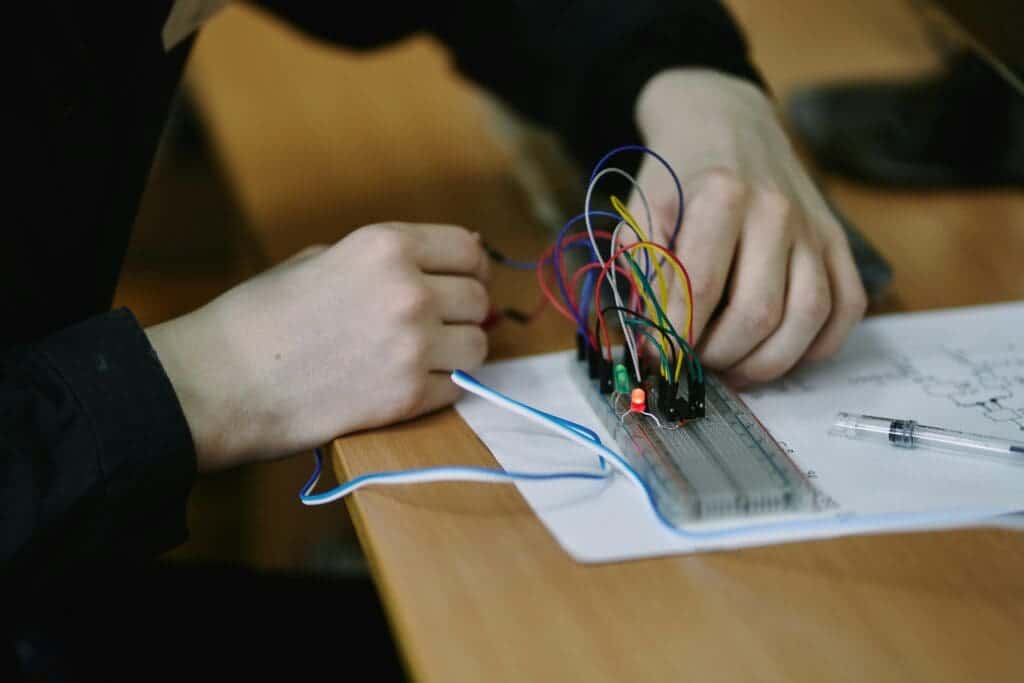Importance of Electives

Electives are specialized courses offered in a school curriculum that allow students to explore interests beyond the mandatory core subjects. While core subjects, such as mathematics, science, literature, and social studies, form the foundational knowledge for a student’s education, electives provide an opportunity for individuals to delve into topics that resonate with their personal passions and career aspirations. This distinction between core subjects and electives is fundamental to understanding a comprehensive educational experience.
In essence, electives serve as an essential component of the learning framework, catering to the diverse interests and career goals of students. They can encompass a wide range of subjects, including art, music, physical education, technology, foreign languages, and vocational training, among others. By allowing students to choose certain courses, schools cultivate an environment that promotes autonomy and engages students in learning that feels personally relevant.
The importance of selecting the right electives should not be underestimated. Electives provide students with the chance to acquire new skills, explore potential career paths, and develop a deeper understanding of their individual strengths and weaknesses. Moreover, participating in elective courses can enhance creativity and critical thinking, as students are often encouraged to approach these subjects from innovative perspectives. Choosing well-suited electives can also contribute positively to a student’s academic performance in core subjects, as engagement in areas of interest often leads to improved motivation and focus.
In conclusion, electives represent a crucial element in a student’s educational journey, offering opportunities for personal development and the exploration of subjects that ignite enthusiasm and foster lifelong learning. The thoughtful selection of electives can profoundly shape a student’s school experience and future endeavors.
Categories of Electives

Electives play a significant role in a student’s educational journey by allowing them to explore interests beyond the core curriculum. They can be broadly categorized into several distinct areas, each contributing unique skills and knowledge essential for personal and intellectual growth.
Firstly, the arts category encompasses subjects such as music, theater, graphic design, and visual arts. Courses in this domain foster creativity and self-expression, enabling students to develop artistic skills and understand various forms of media. Engaging in artistic electives encourages collaboration, critical thinking, and a deep appreciation for diverse cultures and perspectives.
The second category, technology, includes classes like computer programming, digital media, robotics, and information technology. These electives equip students with practical skills pertinent to the modern workforce, including computational thinking and problem-solving abilities. By participating in technology electives, students are better prepared for future careers, particularly in a rapidly evolving digital landscape.
Physical education is another vital category that promotes health and well-being. Through sports, fitness training, and wellness workshops, students learn the importance of physical fitness, teamwork, and discipline. These electives not only support physical development but also enhance mental health, teaching students effective stress management techniques.
Humanities electives, which include courses such as history, literature, sociology, and philosophy, invite students to engage with complex societal issues, encouraging analytical thinking and empathy. By examining various cultures and historical contexts, students gain a broader understanding of human behavior and societal structures.
Lastly, foreign languages provide students with invaluable communication skills and cultural insights. Learning a new language enables individuals to connect with diverse communities and opens doors to global opportunities, enriched by cross-cultural understanding.
In essence, the categories of electives available in schools serve to enhance students’ educational experiences, helping them cultivate skills and knowledge that align with their interests and aspirations.
Creative Electives: Arts and Music

Creative electives, particularly in the realm of arts and music, provide a unique platform for students to explore their passions while developing invaluable skills. Courses in these disciplines foster creativity and self-expression, allowing students to communicate thoughts and emotions in ways that transcend the spoken word. Through engaging in activities such as painting, sculpture, music composition, and performance, students not only hone their artistic talents but also cultivate critical thinking skills and enhance their problem-solving capacities.
For instance, participation in visual arts classes encourages students to experiment with various mediums, from watercolor to digital design. This hands-on experience nurtures innovation and instills a sense of accomplishment as students see their ideas come to life. Similarly, music electives offer diverse opportunities, such as learning an instrument, singing in a choir, or composing original pieces. These activities promote discipline, teamwork, and cultural appreciation, enriching the students’ educational journey.
Testimonials from students who have thrived in creative electives underscore the significance of these classes. One student shared, “Taking an art class allowed me to express myself in ways I never knew I could. It has been a safe space for experimentation and self-discovery.” Another music student noted, “Joining the band not only improved my musical abilities but also helped me find a community where I felt I belonged.” These personal experiences highlight the transformative power of engaging in creative electives, ultimately leading to personal growth and lifelong skills.
Moreover, creative electives pave the way for students to appreciate different cultures and perspectives through art and music. Exposure to diverse artistic traditions and genres encourages an understanding of global influences and fosters empathy. As students collaborate on projects, they learn to respect and celebrate individuality, further enhancing their overall educational experience. Engaging with creative electives thus not only enriches the academic curriculum but also contributes to the holistic development of students.
Technology-Driven Electives

The rapid advancement of technology has significantly reshaped the educational landscape, leading to the emergence of a variety of technology-driven electives that are crucial for students in today’s tech-centric world. Subjects such as computer science, digital media, and robotics not only engage students in hands-on learning but also equip them with essential skills for their future careers. By partaking in these electives, students develop a firm foundation in the principles of coding, digital design, and engineering that are vital for success in numerous profesdions.
Computer science is a cornerstone of technology education, offering students insights into programming languages, software development, and algorithms. Through engaging coursework and project-based activities, students learn to think analytically and improve their problem-solving abilities. These skills are invaluable, as they prepare students to tackle complex challenges that they may face in both academic and professional settings.
Digital media electives further expand students’ knowledge by immersing them in the creative aspects of technology. Students explore graphic design, video production, and web development, fostering a blend of technical and artistic skills. This combination allows learners to express themselves creatively while also gaining the proficiency needed for various career paths in the digital realm.
Robotics stands out as another compelling elective, blending elements of engineering, programming, and creativity. Through building and programming robots, students gain firsthand experience in how technology and engineering intersect. This elective encourages collaboration, as students must often work in teams, promoting interpersonal skills alongside technical expertise. Moreover, as industries increasingly rely on automation, the demand for individuals skilled in robotics continues to grow, thereby opening doors to numerous STEM career opportunities.
The integration of these technology-driven electives into school curricula not only ignites students’ passions but also prepares them for a future where technology plays a pivotal role in everyday life.
Physical Education and Health Electives

Physical education and health electives play a crucial role in fostering a sense of community, enhancing physical fitness, and promoting overall well-being among students. These classes provide students with valuable opportunities to engage in physical activities that encourage teamwork, discipline, and social interaction. By participating in various sports and fitness programs, students can develop important life skills such as resilience, cooperation, and effective communication.
Moreover, the emphasis on health education within these electives helps students to better understand the significance of maintaining a balanced lifestyle. Topics such as nutrition, mental health, and disease prevention are often included in the curriculum, equipping students with essential knowledge that can influence their habits both during and after their school years. This comprehensive approach to health education fosters an environment where students can learn to prioritize well-being, ultimately contributing positively to their academic and personal development.
Unique offerings within the physical education and health electives can particularly spark interest among students. Courses such as dance not only provide physical engagement but also allow for creative expression, enhancing the overall experience and drawing students from various backgrounds. Likewise, yoga is increasingly recognized for its mental health benefits alongside physical flexibility and strength, making it an appealing choice for those seeking stress relief and mindfulness practice. Together, these diverse electives create an inclusive atmosphere that encourages all students to participate, regardless of their athletic abilities.
In conclusion, physical education and health electives serve as a fundamental component of a well-rounded education. They incorporate physical fitness and emotional wellness, ultimately supporting students in their journey to lead healthier, more balanced lives. By ensuring that students have access to various elective options, schools can inspire them to find their passion for fitness and well-being, which can have lifelong benefits.
Humanities and Social Sciences Electives

The humanities and social sciences electives encompass a diverse range of subjects, including history, psychology, and sociology, each offering unique opportunities for intellectual growth and personal development. Students enrolled in these courses are encouraged to engage in critical thinking, exploring complex societal issues while reflecting on the human experience. By examining historical events, psychological theories, and sociological frameworks, learners gain invaluable insights that cultivate empathy and understanding of diverse perspectives.
History classes, for example, invite students to delve into significant past events, analyzing their consequences and relevance to contemporary society. Engaging discussions around pivotal moments in history can lead to stimulating debates, allowing students to articulate differing viewpoints while enhancing their analytical skills. Projects, such as creating timelines or conducting research on a specific historical figure, foster a deeper appreciation for how our past shapes current social contexts.
In psychology classes, students explore the inner workings of the human mind, learning about mental processes and behaviors. Activities that include case studies, experiments, and group discussions aid in developing a nuanced understanding of human emotions and motivations. By fostering an environment of open dialogue, students can gain insights into mental health, societal influences, and interpersonal relationships, thereby enhancing their emotional intelligence.
Sociology electives provide an avenue for students to investigate social structures, groups, and institutions. Through collaborative projects, such as community surveys or social experiments, learners can directly engage with their communities, fostering a sense of civic responsibility. These practical experiences not only make the subject matter relatable but also empower students to contribute meaningfully to societal discourse.
These humanities and social sciences electives serve as vital components of a well-rounded education, inviting students to discover their passions while equipping them with critical skills necessary for a thoughtful engagement with the world around them.
Foreign Language Electives

Foreign language electives offer numerous advantages that extend far beyond the classroom. One of the primary cognitive benefits is the enhancement of critical thinking and problem-solving skills. Learning a new language requires students to understand complex grammatical structures and vocabulary, leading to improved mental agility. Research has indicated that multilingual individuals often excel in tasks that require executive function, such as planning, attention, and organization. Thus, engaging in foreign language electives can serve as an excellent way to bolster overall cognitive development.
Moreover, foreign language electives provide students with the invaluable opportunity to immerse themselves in different cultures. This cultural exposure is integral in fostering global awareness and empathy among students. Understanding a language means diving into the traditions, beliefs, and perspectives of those who speak it, creating a more well-rounded worldview. For instance, students learning Spanish may explore the rich histories of various Latin American countries, while those studying Mandarin can appreciate the complexity of Chinese culture. These experiences not only enrich students’ educational journeys but also promote societal understanding.
Additionally, proficiency in a foreign language can significantly enhance career opportunities for students. In our increasingly globalized society, many employers prioritize bilingual or multilingual candidates, particularly in fields such as international relations, commerce, and education. A student who has taken foreign language electives may find themselves more marketable and able to pursue diverse career paths. For example, upon learning French, one student was able to secure an internship with a multinational company, demonstrating how language skills can open doors in the professional landscape.
In conclusion, enrolling in foreign language electives offers students multifaceted benefits—cognitive enhancements, cultural insights, and improved career prospects, making them a valuable addition to any academic curriculum.
Choosing the Right Electives for Your Interests

Selecting the right electives is a significant step in shaping both your educational journey and future career. To ensure that you choose the electives that align best with your interests and passions, it is essential to take an introspective approach. Begin by reflecting on your personal hobbies, as these can serve as a compass when considering which subjects will engage you the most. For instance, if you enjoy creative activities such as painting or writing, electives that emphasize the arts or literature may provide both enjoyment and deeper understanding.
Furthermore, consider your future career ambitions. Certain electives can serve as foundational experiences that either enhance your existing skills or introduce you to new fields. For example, if you aspire to enter the medical field, courses in biology or health sciences can provide vital insights into the subject matter. Conversely, if you are inclined towards technology, electives focusing on computer science or robotics could be beneficial. Investigating potential career paths can guide you in selecting courses where you can develop relevant skills.
Staying informed about current trends in education can also empower your decision-making. Educational landscapes continue to evolve, and certain fields are experiencing growth and demand. Researching which elective courses are gaining popularity can offer valuable insights into industries that may be viable future career options. Engage in conversations with your teachers or peers and attend informational sessions to gather diverse perspectives about the electives offered.
To facilitate your decision-making, ask yourself a series of reflective questions: What subjects do I find most enjoyable? What skills would I like to develop? Which fields excite me the most? By engaging in this self-reflection and research, you can make an informed choice about which electives align with your interests and career aspirations.
Conclusion: The Impact of Electives on Personal Development

Electives play a crucial role in shaping a student’s educational journey, allowing them to explore diverse interests and develop skills that may not be covered in traditional core subjects. They serve as a fundamental pillar of education, providing a pathway for students to discover their passions and potential. By participating in elective courses, students can cultivate various competencies such as critical thinking, creativity, and teamwork, which are invaluable in both academic and professional settings.
The right electives can be intricately aligned with a student’s personal interests and future aspirations. Whether a student is drawn to the arts, sciences, technology, or humanities, these courses offer a unique opportunity to delve deeper into areas of curiosity. By engaging with electives, students are encouraged to step outside their comfort zones, fostering adaptability and resilience—qualities essential for personal and professional success. Furthermore, these classes often encourage collaboration and communication, skills that are imperative in today’s interconnected world.
As students navigate their educational paths, it is vital for them to actively explore the wide array of elective options available. Each choice they make can significantly enhance their learning experience, providing a broader context for their primary studies and enabling them to make informed decisions about their futures. Pursuing electives not only enriches students’ academic knowledge but also contributes to their overall personal development, making them well-rounded individuals ready to face the complexities of life after graduation.
In conclusion, students should embrace their ability to choose electives that resonate with their interests. These courses are not merely an addition to their curriculum; they are an integral part of their educational experience that encourage self-discovery, skill development, and lifelong learning. Engaging with electives can help students uncover passions that might shape their future careers. Therefore, students are encouraged to take advantage of the elective offerings at their schools and embark on a journey of exploration and growth.

